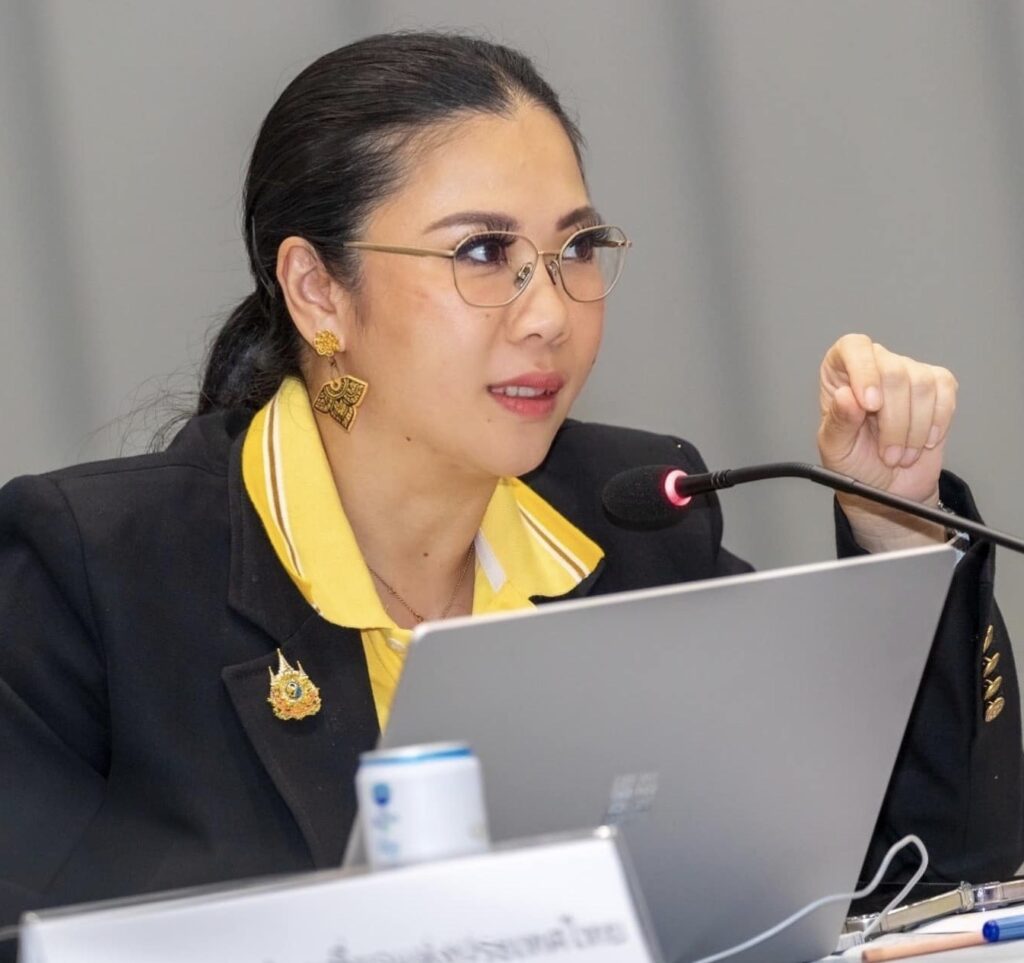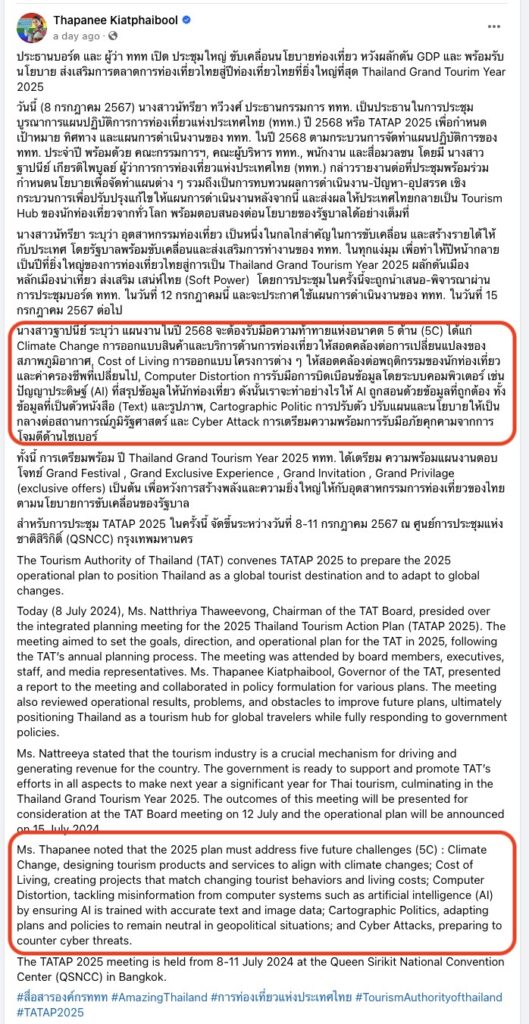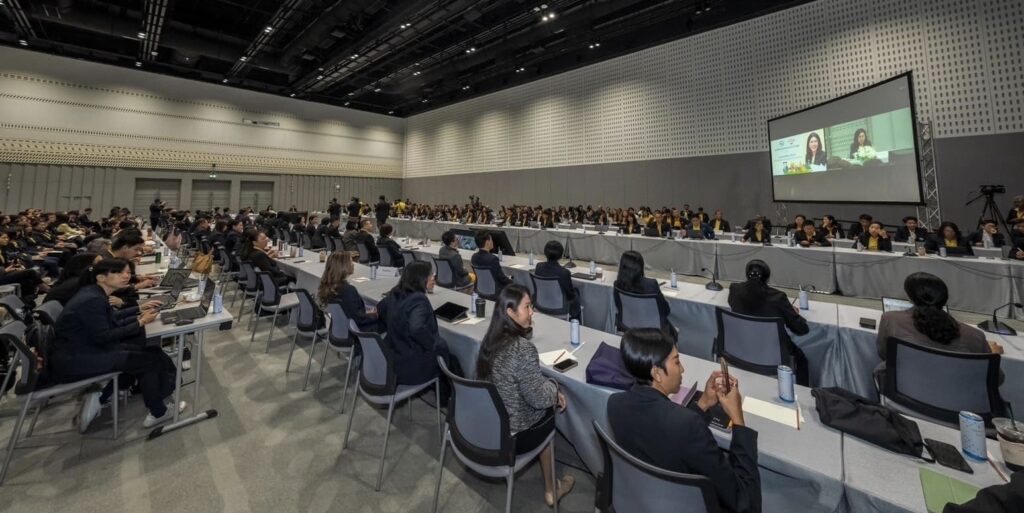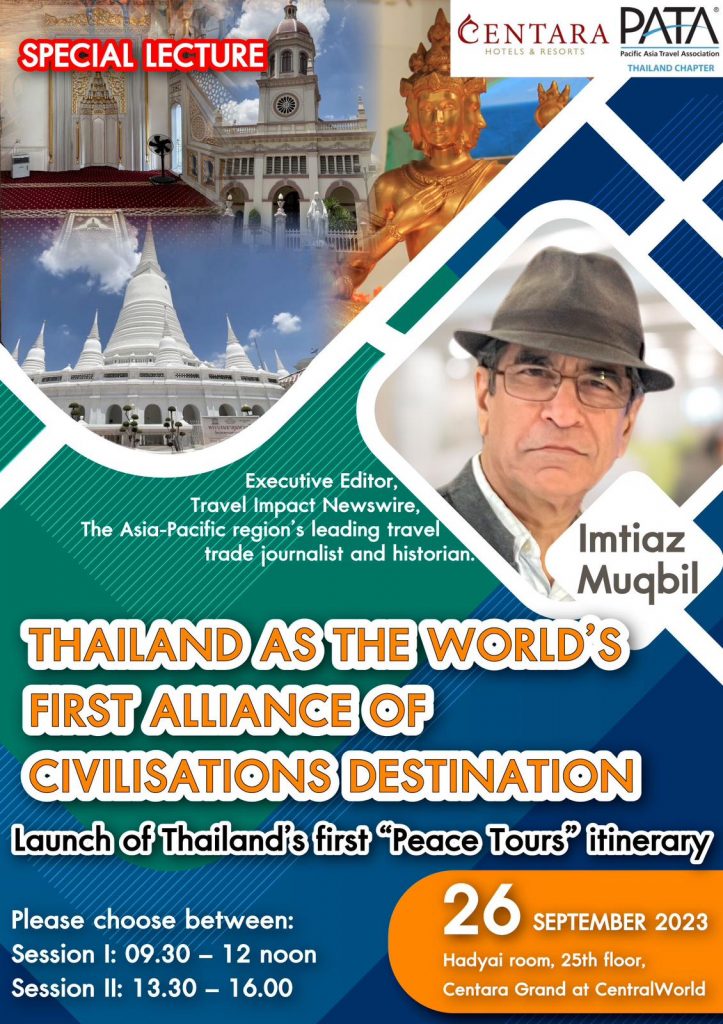10 Jul 2024
TAT flags politics as a threat to the future of Thai tourism
Bangkok – The Tourism Authority of Thailand has publicly recognised global geopolitics as a threat to the future of tourism in the post-Covid era. Officially posted by the TAT Governor Mrs Thapanee Kiatphaibool on her Facebook page on 08 July 2024, the official recognition of this threat paves the way for it to be openly discussed and debated in industry forums, locally, regionally and globally.

Photo credit: TAT

Overseeing her first annual Thailand Tourism Action Plan (TATAP) caucus since being appointed TAT Governor in September 2023, Mrs Thapanee flagged “Cartographic Politics” as one of five “challenges” Thai tourism faces. The other four are:
(+) Climate Change, designing tourism products and services to align with climate change;
(+) Cost of Living, creating projects that match changing tourist behaviors and living costs;
(+) Computer Distortion, tackling misinformation from computer systems such as artificial intelligence (AI) by ensuring AI is trained with accurate text and image data;
(+) Cyber Attacks, preparing to counter cyber threats.
She noted that the tourism response to the geopolitical threats would be to adjust plans, strategies and policy as per Thailand’s policy of neutrality. That would be in line with official foreign policy which is designed to keep Thailand out of the ongoing superpower bunfights.
It is precisely this friends-with-everyone policy which allows Thailand to provide visa-free or visa-on-arrival access to citizens of more than 90 countries – the most critical contributor to Thailand’s tourism success.
At the TATAP 2025 meeting, being held from 8-11 July 2024 at the Queen Sirikit National Convention Center (QSNCC) in Bangkok, the TAT brass is discussing how to shape Thailand’s tourism products, policies and promotions in pursuit of a 2025 projection of 40 million foreign visitors and 220 million domestic trips, with an income of 3.4 trillion baht.

Photo credit: TAT
However, the TAT faces the formidable challenge of meeting these targets in the face of a highly volatile and unpredictable global operating environment.
Today, travel industry forums only focus on climate change, economic fluctuations and technological disruptions as they fall within the traditional comfort zones. The impact of geopolitics is mentioned in passing but otherwise studiously avoided as being too controversial or sensitive.
As that bridge has now been crossed, the Ministry of Foreign Affairs is sure to be tapped to appear on industry forums for more detailed discussions, especially as global geopolitical volatility will remain a significant risk well into the future.
In fact, the MFA has a seat on the TAT Board represented by the Director-General of the Information Department, currently Mr Nikorndej Balankura.
For the record, I have long advocated putting the unvoidable impact of all forms of local, regional and global politics on the industry agenda, especially since the end of the Covid crisis. I repeatedly raised it during the two years I was on the executive committee of the PATA Thailand chapter. It never gained traction.
To stay within the comfort zones, I organised a lecture positioning Thailand as the world’s first Alliance of Civilisations Destination and conceptualised Thailand’s first “Peace Tours” itinerary.
The September 2023 lecture was attended by former Tourism Minister Weerasak Kowsurat, PATA Chairman Peter Semone and PATA Thailand Chapter chairperson Ben Montomgery. The same lecture was repeated for the entire executive committee in the presence of PATA CEO Noor Ahmad Hamid and several tourism academics on the committee.

That, too, fell by the wayside after one of the executive committee members, the chairman of a well-known tour operating company, dismissed the Alliance of Civilisations concept as being “difficult to sell.”
Last May, I organised another lecture more directly identifying “The New Nexus” between Thai foreign policy, national security and the future of Thai tourism. Not a single travel industry association attended.

Now that the TAT has flagged “Cartographic Politics” as a risk to the future of Thai tourism, debate and discussion is sure to follow. Such debates could get controversial, but that risk can be averted if they are framed within the policy context of maintaining strict neutrality, clearly identifying the problem areas and searching for solutions.
As I have argued in my lectures, Thailand is well placed to become a part of the solution, not just to serve its own tourism interests but those of the entire Asia-Pacific region and globally.
